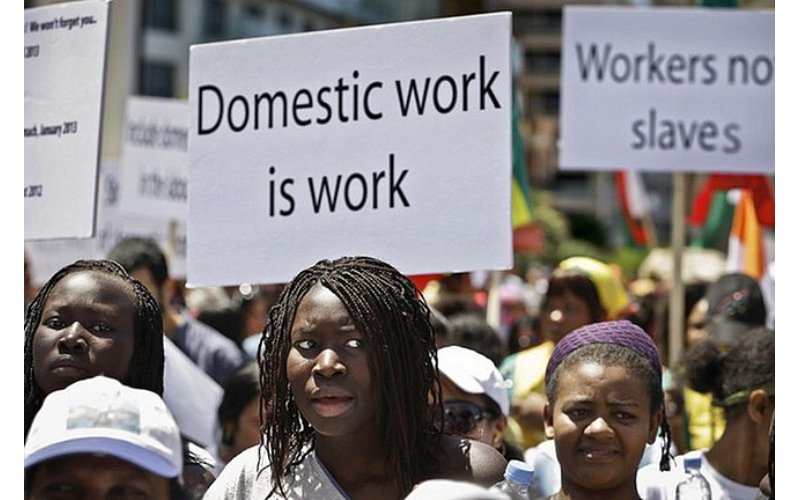External recruitment agencies have asked government to cancel the ban on exportation of domestic workers to enable Ugandans tap into foreign jobs.

Under their umbrella body, Uganda Association for External Recruitment Agencies (UAERA), the agencies say the ban has increased cases of trafficking of persons which affects the country’s income.
“The ban has caused more problems in as far as recruitment of people is concerned because many people are unemployed. We request government to expedite the review process to enable Ugandans go and work through legal means,” said Mr Andrew Tumwine Kameraho, the UAERA chairman.
In January 2016, government banned the recruitment and deployment of domestic workers to Saudi Arabia and other countries citing inhumane treatment by employers.
The ban came after a review of the processes and procedures relating to the recruitment and deployment of house maids as well as their working conditions in the Kingdom of Saudi Arabia.
According to the ministry of Gender, Labour and Social Development, Uganda earns $35 million (Shs125.8b) per month out of the remittances of workers from the Middle East. This accounts for about 40 per cent of the remittances worldwide.
Speaking at the closure of a two-day training for recruitment agencies in Kampala last week, Mr Kameraho also asked the ministry to travel and see the success stories as part of the process to streamline the process.
Workers’ rights body, Platform for Labour Action (PLA), in partnership with the ministry of Internal Affairs, organised the training to enable the recruitment agencies utilizes the law in course of doing their business.
The director of labour at ministry, Mr Martin Wandera, said the ban on exportation of domestic workers is still under review.
“It is a temporary measure which will be lifted once the process is done and as government. We shall make a pronouncement,” he said.
Mr Wandera also revealed that government has since signed contracts with Saudi Arabia and Jordan to ensure that the rights of workers are protected and their contractual terms met.
“The only way through which immigration is safe is by way of going to a registered and licensed company. Many people are duped and trafficked and by this, government cannot easily track you or even monitor how remuneration is done,” he warned.
Ms Grace Lule Mukwaya, the executive director PLA warned that externalisation of labour business is being affected by traffickers.
“It is a profitable business but how to protect the dignity makes the sector viable and attractive,” she said.


One Response
Domestic work indeed is work, provided your integrity is highly protected.